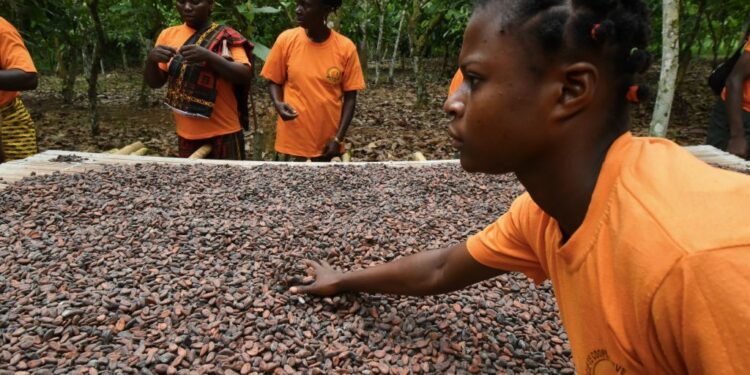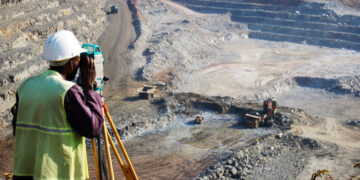Women entrepreneurs can make the world $6 trillion richer
Every small business owner knows how difficult it can be to get access to affordable capital. But for many women in the Global South, it’s not just difficult — it’s often impossible.
A few years ago in Senegal, I met a woman who decided to do something about that problem. In 2017, Thiaba Camara Sy left her job as the head of a consulting firm and co-founded WIC Capital, an investment fund for women entrepreneurs in West Africa. Since then, WIC Capital has raised more than $5 million and invested in eight businesses run by women who knocked on far too many closed doors before WIC saw their potential.
One of those women, Souadou Fall, co-founded a company that turns abandoned tires — which would otherwise gather rainwater and breed mosquitoes — into fuel for factories. Fashion designer Safiétou Seck, who’d struggled to find funding despite an MBA and years of experience, was able to grow her company and now sells her designs to customers around the world. And Isseu Diop Sakho expanded a business that bakes French pastries from native grains, supporting 20 local suppliers and 75 employees.
As inspiring as these stories are, they underscore a grave problem: When women entrepreneurs succeed, it’s in spite of the system, not because of it. Worldwide, there’s a $1.7 trillion gap between the credit women need and what they’re able to get. Estimates suggest that by closing that gap, as much as $6 trillion in global GDP can be unlocked. That’s a net gain for the world that we can’t afford to pass up.
A confluence of crises — wars, climate change, the pandemic — has left low- and middle-income countries with sluggish economic growth: 43% of the world’s poorest countries have a lower per-capita GDP now than in 2019. The problem and the opportunity are especially profound in Africa, which has the highest proportion of women entrepreneurs in the world.
No country can grow healthier and more prosperous while leaving behind half its population. So as leaders gather at the World Bank and International Monetary Fund meetings this week to find ways to accelerate economic growth, they must also seek ways to unlock women’s economic power — starting with access to capital.
After all, while investment funds like WIC Capital can make a huge difference for a handful of entrepreneurs, they can’t come close to making up the huge financing shortfall. For that, there needs to be systemic change. Many financial systems simply weren’t built with small borrowers — and particularly women — in mind.
And those systems are rife with bias from lenders who can still legally discriminate against women in 96 countries. When a woman walks through the door with a good idea, a smart business plan, and a dream to improve her future, lenders too often see only risk. And the women who do get loans often receive far smaller ones than men — even though evidence from M-Kopa, an asset-financing company serving customers across Africa, shows that women are 10% less likely than men to default on their repayments.
Fortunately, there are a number of reforms leaders can pursue that would address the financing gap.
First, governments should remove the barriers facing responsible lenders trying to serve low-income customers while still protecting people from predatory lenders. That means creating systems in which minimum capital requirements and compliance expectations increase along with the size and complexity of the lender in question — because it doesn’t make sense to treat a small microfinance lender the same as a full-service bank.
Second, the development community should make funds from donor countries available to lenders to help manage their perception of risk. If lenders know they’re partially covered in case of default, they’re more likely to invest in a more diverse range of entrepreneurs. By providing those guarantees, donors can also incentivize larger financial institutions to loan to smaller, more nimble ones in their own countries.
Third, governments should invest in digital infrastructure so that lenders can add customers more cheaply and assess creditworthiness in new ways. Women are less likely than men to have formal credit histories — but they may have informal ones, built by paying bills on time and saving and pooling money in community groups. With digital tools, lenders can evaluate customers based on less traditional data and share that information securely with other lenders. Think of it as a credit bureau designed around the realities of the informal economy that exists across the Global South.
Finally, donor countries must fully fund the World Bank’s International Development Association (IDA), which in turn must prioritize the lowest-income countries in its efforts to reduce poverty and spur economic growth. By offering loans on better terms than the broader market, the IDA helps lay the foundation for those countries to build stronger financial systems — and in turn, invest back in their people and businesses.
Getting capital to women is not just the right thing to do. It’s the smart thing to do. Across WIC Capital’s investment portfolio, sales are up five times, and the fund has a goal of creating 3,000 jobs in the next seven years. And that’s from just eight businesses.
A full quarter of all African women are entrepreneurs. Imagine if their futures didn’t depend solely on a few visionaries like Thiaba Sy. Imagine the progress that would be possible — for their families, communities and countries — if those who hold the keys to capital opened the doors to all.
Melinda French Gates is co-chair of the Bill & Melinda Gates Foundation, founder of Pivotal Ventures and author of “The Moment of Lift: How Empowering Women Changes the World.”
This column was provided by Bloomberg News.








